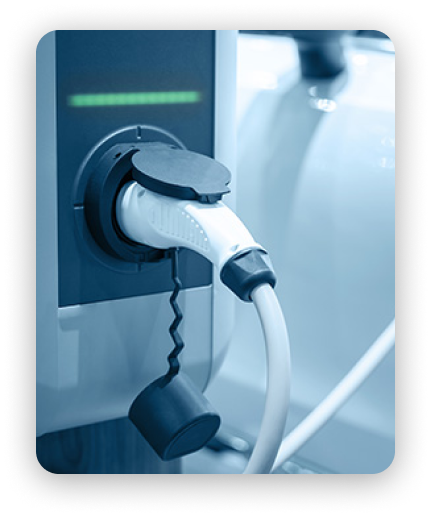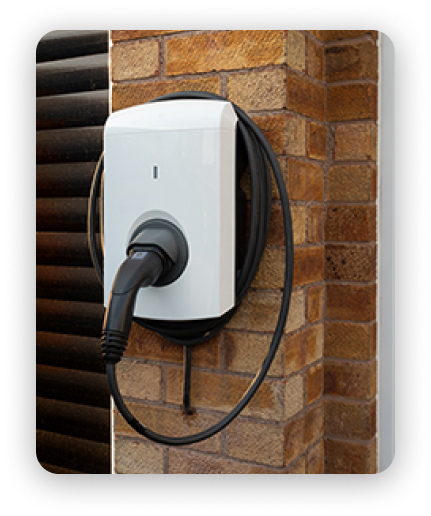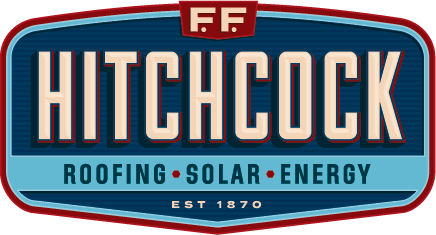As electric vehicles (EVs) become more and more popular, having a reliable home charging solution is essential. F.F. Hitchcock Plumbing, Heating & Cooling offers expert EV charger installation services in Wolcott, CT, to keep your vehicle powered up and ready to go. If you’re looking to install a fast at-home Level 2 charger, our experienced electricians ensure a seamless installation process, providing convenience and efficiency right in your garage. What does this mean? No more searching for costly, inconvenient public chargers and taking extra time out of your day to wait for your car to charge. In other words, more time, convenience, and freedom.
EV Charger Installation in Wolcott, CT
Same as cash financing on all new installations.

The Nuances of EV Charger Installation
Installing an EV charger at home involves more than simply plugging it in. The process typically starts with an assessment of your electrical system to ensure it can handle the additional load. If your system needs an upgrade, our team will take care of it, ensuring everything meets safety standards. We also help you choose the right type of charger for your needs. Level 1 chargers use a standard 120-volt outlet, ideal for overnight charging, while Level 2 chargers, which require a 240-volt outlet, offer faster charging times—perfect for busy households.
Once the right charger is selected, we handle the entire installation. This includes mounting the charger, connecting it to your electrical panel, and testing it to ensure it functions properly. With our professional installation, you can be confident that your EV charger is safely and efficiently integrated into your home.
Another important aspect to consider is future-proofing. As EV technology advances, having a versatile and upgradable system in place can save you from costly updates down the line. We install chargers that are compatible with a wide range of vehicles and can easily adapt to future needs, ensuring long-term value.
Our installation process also focuses on convenience. We work around your schedule, minimizing disruptions to your daily routine. After installation, we provide a thorough walkthrough of how the system works so you’re comfortable using your new EV charger.
- Overload protection
- Ground fault detection
- Automatic shut-off
- Temperature monitoring
- Surge protection
Exceptional EV Charger Installers in Wolcott
At F.F. Hitchcock Plumbing, Heating & Cooling, we’re more than just an electrical service provider—we’ve been a trusted part of the Wolcott community since 1870. As a fourth-generation, family-owned business, we’ve always stayed ahead of the curve, offering cutting-edge solutions like EV charger installations.
Our electricians are fully licensed and highly trained, bringing decades of combined experience to every project. We’re especially proud to be recognized as a Lennox Premier Dealer, a mark of excellence in our industry. Additionally, we’ve earned accolades like the Carrier President’s Award and maintain an A+ rating with the Better Business Bureau (BBB). We’re also proud to back our work with industry-leading warranties and offer 24/7 emergency service, so you’re never left in the lurch when you need us most.
Are you ready to get started with your EV charger installation in Wolcott? Contact F.F. Hitchcock Plumbing, Heating & Cooling today, and let our professional EV charger installers handle all of your installation needs!
Also, discover our other electrical services!









